I am trying to learn about CPU cache performance in the world of .NET. Specifically I am working through Igor Ostovsky's article about Processor Cache Effects.
I have gone through the first three examples in his article and have recorded results that widely differ from his. I think I must be doing something wrong because the performance on my machine is showing almost the exact opposite results of what he shows in his article. I am not seeing the large effects from cache misses that I would expect.
What am I doing wrong? (bad code, compiler setting, etc.)
Here are the performance results on my machine:



If it helps, the processor on my machine is an Intel Core i7-2630QM. Here is info on my processor's cache:

I have compiled in x64 Release mode.
Below is my source code:
class Program
{
static Stopwatch watch = new Stopwatch();
static int[] arr = new int[64 * 1024 * 1024];
static void Main(string[] args)
{
Example1();
Example2();
Example3();
Console.ReadLine();
}
static void Example1()
{
Console.WriteLine("Example 1:");
// Loop 1
watch.Restart();
for (int i = 0; i < arr.Length; i++) arr[i] *= 3;
watch.Stop();
Console.WriteLine(" Loop 1: " + watch.ElapsedMilliseconds.ToString() + " ms");
// Loop 2
watch.Restart();
for (int i = 0; i < arr.Length; i += 32) arr[i] *= 3;
watch.Stop();
Console.WriteLine(" Loop 2: " + watch.ElapsedMilliseconds.ToString() + " ms");
Console.WriteLine();
}
static void Example2()
{
Console.WriteLine("Example 2:");
for (int k = 1; k <= 1024; k *= 2)
{
watch.Restart();
for (int i = 0; i < arr.Length; i += k) arr[i] *= 3;
watch.Stop();
Console.WriteLine(" K = "+ k + ": " + watch.ElapsedMilliseconds.ToString() + " ms");
}
Console.WriteLine();
}
static void Example3()
{
Console.WriteLine("Example 3:");
for (int k = 1; k <= 1024*1024; k *= 2)
{
//256* 4bytes per 32 bit int * k = k Kilobytes
arr = new int[256*k];
int steps = 64 * 1024 * 1024; // Arbitrary number of steps
int lengthMod = arr.Length - 1;
watch.Restart();
for (int i = 0; i < steps; i++)
{
arr[(i * 16) & lengthMod]++; // (x & lengthMod) is equal to (x % arr.Length)
}
watch.Stop();
Console.WriteLine(" Array size = " + arr.Length * 4 + " bytes: " + (int)(watch.Elapsed.TotalMilliseconds * 1000000.0 / arr.Length) + " nanoseconds per element");
}
Console.WriteLine();
}
}